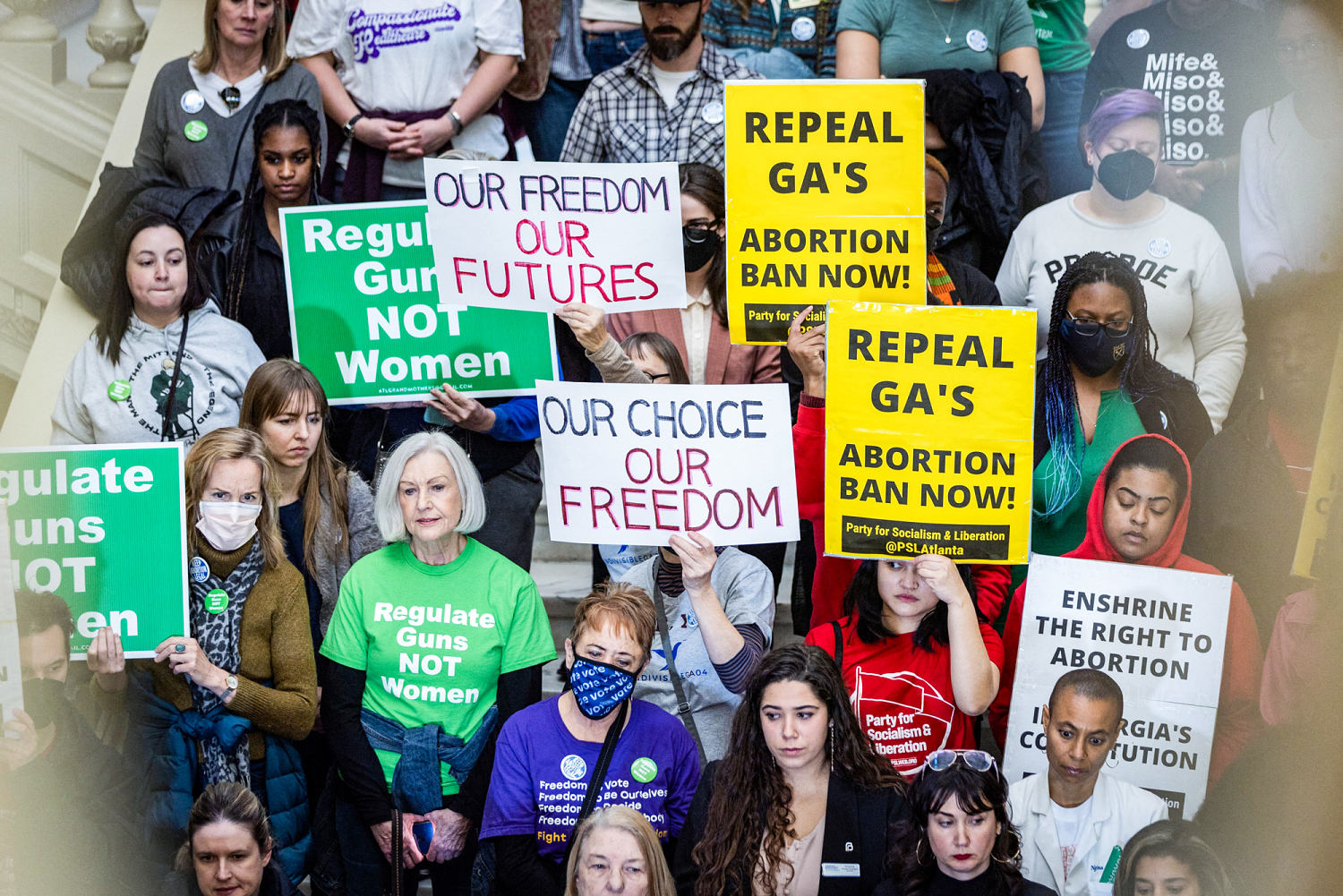
The Georgia Supreme Court on Monday reinstated the state’s six-week abortion ban while it reviews an appeal from the state of a lower court ruling that had struck down the law.
The decision goes into effect at 5 p.m. local time, meaning that most abortions will again be illegal in the state after six weeks of pregnancy after that time.
The state Supreme Court’s decision, however, left in place the lower court’s ruling blocking a separate provision of the law that had given state prosecutors broad access to the medical records of abortion patients without due process protections.
The state’s near-total abortion ban, known as the LIFE Act, was signed by Republican Gov. Brian Kemp in 2019 but didn’t take effect until July 2022, after it faced a legal challenge and the U.S. Supreme Court’s reversal of Roe v. Wade.
The law bans abortion care when a fetal heartbeat detected, which can be as early as six weeks, before many women even know they are pregnant. It includes exceptions for some situations to protect the mother’s life and health, and for some situations where a fetal anomaly is detected.
Last week, a judge in Fulton County, Georgia, struck down the state’s six-week abortion, allowing the procedure to resume and almost immediately making it legal up to 22 weeks of pregnancy.
In that decision, Fulton County Superior Court Judge Robert McBurney wrote that a review of “our higher courts’ interpretations of ‘liberty’ demonstrates that liberty in Georgia includes in its meaning, in its protections, and in its bundle of rights the power of a woman to control her own body, to decide what happens to it and in it, and to reject state interference with her healthcare choices.”
“That power is not, however, unlimited,” McBurney continued. “When a fetus growing inside a woman reaches viability, when society can assume care and responsibility for that separate life, then — and only then — may society intervene.”
The Georgia Supreme Court’s ruling Monday — which takes effect while the court reviews the state’s appeal to the lower court’s opinion — is likely to sow further uncertainty regarding access to abortion care in a key battleground state where Democrats have put the issue front and center.
At the forefront of some that messaging has been the fate of Amber Nicole Thurman and Candi Miller, two Black women who died in 2022 after they experienced complications from having taken abortion pills.
Vice President Kamala Harris has highlighted their cases in her White House bid.
Miller, who had numerous health issues, had been scared to see a doctor because of the law, and Thurman was hospitalized for 20 hours before doctors decided they could legally operate on her. ProPublica reported that a state board found both deaths were preventable.
Reproductive rights groups slammed Monday’s ruling.
“It is cruel that our patients’ ability to access the reproductive health care they need has been taken away yet again,” Feminist Women’s Health Center executive director Kwajelyn Jackson said in a statement. “This ban has wreaked havoc on Georgians’ lives, and our patients deserve better.”
Planned Parenthood Southeast spokesperson Jaylen Black called the ruling “an egregious example of how far anti-abortion lawmakers and judges will go to strip Georgians of their fundamental rights, adding that the ban “resulted in the devastating, preventable deaths of Amber Thurman and Candi Miller and will continue to harm Georgians as long as it is in effect.”



